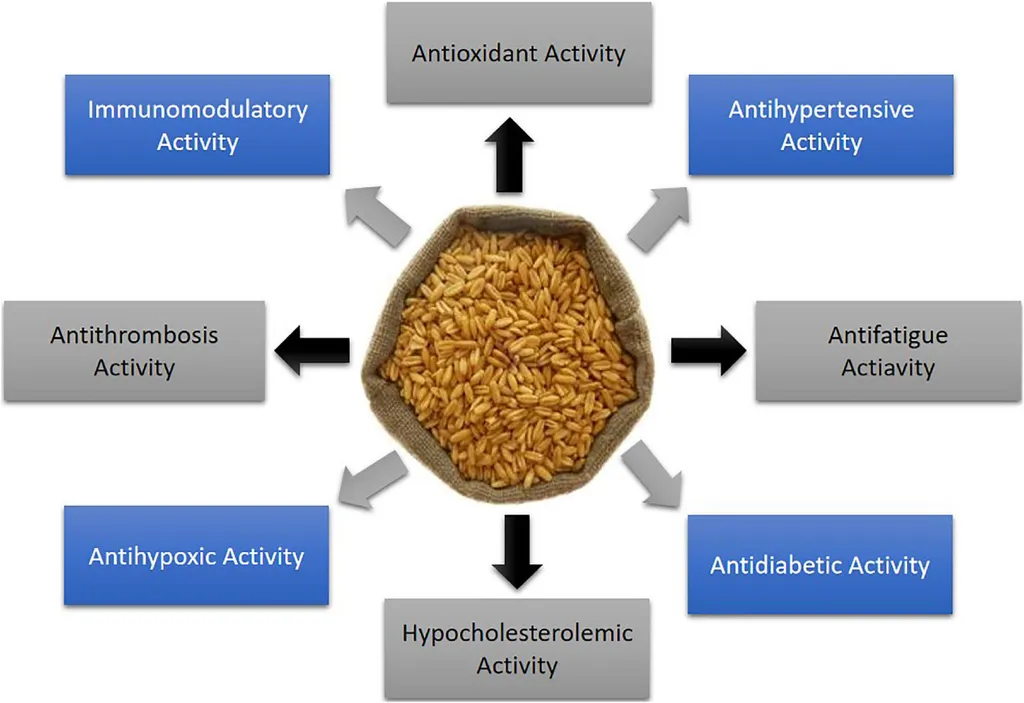In the quest to harness the full potential of agricultural byproducts, a groundbreaking study led by Bingjie Chen from the School of Food Science and Biotechnology at Zhejiang Gongshang University in Hangzhou, China, has uncovered promising anti-allergic properties in rice bran polysaccharide (RBP). Published in the journal *Food Science and Human Wellness* (translated as *Food Science and Human Wellness*), the research suggests that RBP could play a pivotal role in mitigating food allergies and improving gut health, potentially opening new avenues for functional food development.
Food allergies affect millions worldwide, and the search for effective treatments has been relentless. Chen’s study is the first to investigate the effects of RBP on ovalbumin (OVA)-induced allergies and gut microbiota composition. The findings are nothing short of remarkable. “We found that medium-dose RBP significantly reduced allergy symptoms in mice, lowered histamine levels, and decreased allergen-specific immunoglobulin E (IgE),” Chen explained. This reduction in allergic responses was accompanied by a decrease in intestinal inflammation, highlighting RBP’s potential as a therapeutic agent.
The study delved deeper into the mechanisms behind these observations. RBP was found to regulate the differentiation of T-helper cells (Th1/Th2), achieving a dynamic equilibrium and downregulating Th2 polarization—a key factor in allergic reactions. “RBP decreased allergy-associated responses in intestinal epithelial cells and Th2 cells, which is crucial for understanding its anti-allergic effects,” Chen added.
But the benefits didn’t stop there. The research also revealed that RBP enhanced the abundance and diversity of gut microflora and increased the content of short-chain fatty acids (SCFAs), which are essential for gut health. This modulation of the gut microbiota suggests that RBP could mitigate food allergies by improving overall gut health.
The implications of this research are far-reaching. Rice bran, a byproduct of rice milling, has long been underutilized. This study not only highlights its potential in developing innovative functional foods but also underscores the importance of exploring agricultural byproducts for their health benefits. “Our findings provide a basis for the development of new functional foods with anti-allergic properties,” Chen noted.
As the food industry continues to evolve, the demand for natural, health-promoting ingredients is on the rise. RBP’s anti-allergic properties and its ability to improve gut health position it as a valuable ingredient in the development of functional foods. This research could pave the way for new products that cater to the growing market of health-conscious consumers.
Moreover, the study’s focus on gut microbiota offers a glimpse into the future of personalized nutrition. As our understanding of the gut microbiome deepens, the potential for tailored dietary interventions to manage allergies and other health conditions becomes increasingly apparent. This research is a stepping stone towards that future, offering a promising lead in the quest for effective, natural solutions to food allergies.
In conclusion, Chen’s study is a testament to the untapped potential of agricultural byproducts and the power of scientific exploration. As we continue to unravel the complexities of food allergies and gut health, research like this brings us one step closer to a future where natural, effective solutions are within reach.

